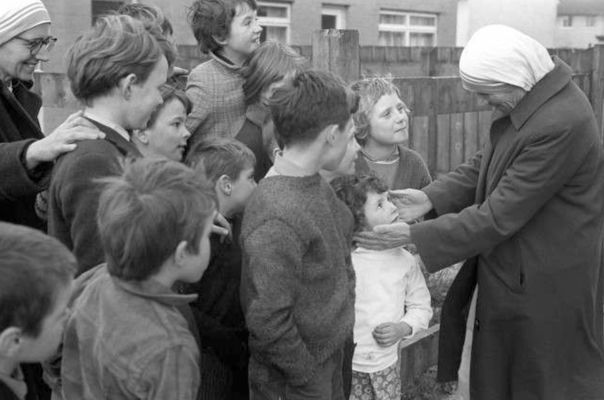AS part of our fiftieth anniversary celebrations, we have launched a new podcast – Over The Wire and each week we will be taking a look back at some of the stories and the people who made the Andersonstown News and West Belfast what it is today.
This week we were joined by Dr Éamon Phoenix who is currently working with the Colin Neighbourhood Partnership to develop their own series of podcasts and a heritage trail looking back at the history of the Colin area.
In this week’s episode, we discussed the development of the Poleglass estate and the unionist opposition to the plans.
Discussing the need for a development such as Poleglass, Dr Éamon Phoenix said: “Belfast experienced the biggest population movement in Western Europe since the second world war between 1969 and 1972. Somewhere between 60 and 100,000 people, three quarters of them Catholic were forced to move home from estates like Rathcoole and Creagagh, Dundonald and of course, they became hemmed in the expanding area of Catholic West Belfast really from the Castle Street junction towards Twinbrook which was becoming occupied by Catholic tenants, many of them having to squat because they'd lost their homes in attacks during that very troubled period.
“So the upshot was that these people had to be housed. And really by 1973 , 1974, the Housing Executive which been set up was considering the idea of a satellite town embracing the slightly older Twinbrook area, and a new kind of housing estate on the farmland which encompassed Poleglass which lay between Belfast and Lisburn.
“They envisaged an area population of perhaps 50,000 people. And this of course was put out for consultation. It immediately hit the buffers with Lisburn District Council. It was an overwhelmingly Unionist Council and leading politicians like Ian Paisley also James Molyneux, the Reverend Robert Bradford, later MP for South Belfast, the clergyman in the area, the Reverend William Beatty, who was a DUP councillor in the area, backed by elements of Orangeism, and loyalism began to object and the eventually set up the ant-Poleglass pressure group, which began to organise meetings and demonstrations, and even Union Jack led parades through the area.”
Dr Phoenix added that the unionist lobby were trying to canvass local farmers and residents of that sprawling rural area telling them that they should oppose this development which would bring trouble to the gates of Lisburn Council and which would introduce the violence of the Troubles and violent republicanism.
“That was very much their message. But remember, a Housing Executive Report, in 1973, had revealed that almost 4000 homes in Catholic working class areas didn't have basic sanitary facilities.
“This is the end of the old slum Victorian housing in Belfast as a whole which is cleared away during redevelopment in the 1970s. But at this age, people were living in grinding poverty, and they had the added problem of having to up sticks and move them violent threats and hostility. So it was a major, major crisis and this campaign really went on in various forms from 1973, 1974 when the issue was taken up by the short lived power sharing Executive. There were protests to the Housing Minister Austin Currie at that time, and then of course, under Direct Rule.
“The Labour government of Harold Wilson and then Jim Callaghan was dealing with this issue as well, at a time when there were a lot of rumours that the Liberal government were organising a withdrawal from the North at that stage and the feeling was that they wouldn't invest the money required.
“In the end, it was announced by 1976, that the original number of houses 4000 would be cut to 2000. And even then the protesters in this growing district council were not satisfied.
“They wanted no houses in Poleglass at all. But by 1978, the land had been vested and it was very hard and farmers would be there for centuries, perhaps generations having to move home. But their houses were vested, they had to go. And it wasn't really until the 39th day of the first Hunger Strike in November 1988 that the first 300 houses were built in Poleglass and finally open mainly at Old Colin.”
Dr Phoenix said that problem then arose when the area needed infrastructure.
“It needed schools, it needed a social centre, it wanted a church and needed a medical centre. Lisburn District Council made clear they were not prepared to empty bins in Poleglass, they were not prepared to provide recreational facilities. In fact, for a long time, the council has even refused to recognise the validity of the Polelgass Residents Association. And this really was smacked in pure sectarianism.
“So in the end, eventually, the British government ministers intervened and just looking at files that I discovered in state papers from 1980, the issue is discussed by high level officials at Stormont in September 1980. And Sir Ken Bloomfield, later head of the civil service, told his colleagues that Poleglass was essential to relieve the overcrowding conditions of West Belfast.
“People will be aware of the sheer kind of the intensity of housing, social and non-employment problems within West Belfast which was an unemployment blackspot, with perhaps 50 per cent male unemployment.
“And he said, Of course that Lisburn had opposed it from the beginning. So of course, the Catholic community view the scheme as a test of the government's will. That was the issue and the problem was Lisburn Borough Council was not fulfilling its responsibilities. So the garbage was piling up, there was a public health threat to the young families who were moving into the area having got their first sanitary home, perhaps in a lifetime.
“And I suppose that tells you a lot about the time. Catholic West Belfast needed housing badly, people were living with their grandparents in unsanitary, Victorian slum dwellings at that stage and Poleglass offered an opportunity for people that suffered terribly in the early years of the Troubles.
“That's how the estate developed in the early 1980s. And of course, is today enjoying all sorts of facilities thanks to the Colin Neighbourhood Partnership under Annie Armstrong's leadership, including, of course, the new transport hub, there's a new public park opening and so on. And, you know, people are now proud to say, you know, I come from Poleglass.”
To listen to the full podcast visit belfastmedia.com, Spotify or wherever you get your podcasts.







